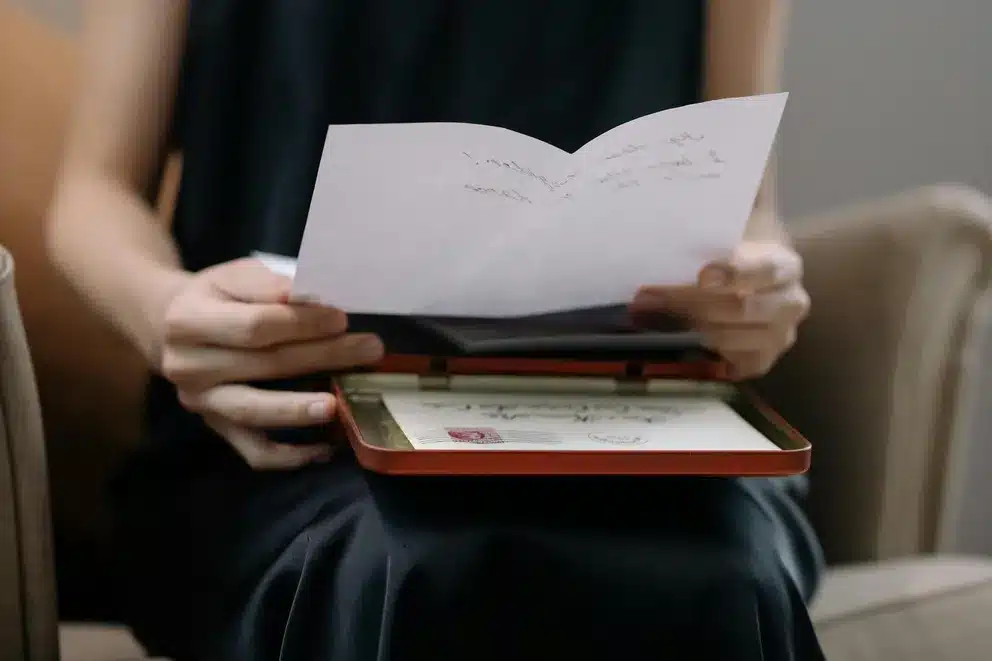I grew up as the unwanted puzzle piece. Mom had me at nineteen, divorced before my kindergarten class learned to spell “family.” When I was five she married Mark, and a year later my half-sister, Ava, arrived in a pink blur of bows and adoration. Mark never called me his daughter. He wasn’t cruel—just absent in the way a closed door is absent. He paid the bills, read the paper, and looked through me like I was part of the furniture. For Ava, he lit up like a birthday cake.
I learned to live with it. Straight-A report cards, dishes done without being asked, quiet compliance—I kept hoping excellence might turn me visible. When I was valedictorian, he gave me a single nod. When Ava brought home a B-plus, he took her out for pizza and ice cream. College became my exit. He funded it with the gentle reminder of a threat—don’t waste my money—and I swallowed the ache that rose whenever “thank you, Dad” nearly escaped my mouth. I studied veterinary medicine because animals don’t test your bloodline before they let you help.
The call came during my final year: a heart attack, sudden. At the funeral, people spoke of his devotion to “his girls,” and I sat in the front row like an extra in someone else’s scene. Three weeks later we gathered in a lawyer’s office—Mom hugging her purse, Ava scrolling her phone, me counting the stitches on my sleeve. The will was short and surgical. Five thousand dollars to my mother. Five thousand to Ava. Everything else—house, savings, investments—approximately $640,000—to me.
Mom went white. Ava’s jaw fell. “This is a mistake,” they said, in harmony.
“There’s a letter,” the attorney added, sliding an envelope toward me.
His handwriting pulled me back to childhood grocery lists—sturdy, unadorned. He wrote that he’d seen more than he ever said: the chores done without fanfare, the way I never complained, the way I tried to make him proud. And then the turn I didn’t see coming—Ava wasn’t his biologically. Mom had an affair early in their marriage; a recent DNA test confirmed it. He was blunt about what that had taught him: blood is a fact, not a bond. He told me I was the only one who treated him like a person instead of a paycheck. He wanted me to finish veterinary school. He asked for forgiveness he wasn’t sure he deserved.
I met Mom and Ava that evening with the letter folded in my pocket. Their faces held fury, not grief. When I said, “He knew,” Mom’s expression collapsed. Ava demanded I hand over the letter; I didn’t. “You manipulated him,” she spat. I asked what part of the truth qualified as manipulation: the three cars she totaled on his dime? The semesters she dropped, the cards Mom maxed, the jewelry she said he never bought? “We’re his real family,” Mom snapped.
“Are you?” I asked. “Because according to him, neither of you treated him like one.”
Ava looked at Mom for denial that never arrived. The silence was a confession. She broke first, a strangled “How could you?” aimed at the woman who raised us, not at me. I left them to the wreckage of that new fact and went home to sit with mine: a man who’d never called me daughter had seen me anyway.
By morning, the practicalities knocked. I kept the inheritance. I’ll donate half to Riverside Animal Rescue and use the rest for vet school. My phone rang that night—Mom’s voice sugared and strange. “We should split everything equally,” she cooed, as if the last two decades could be rebalanced with math. I asked her when we’d last been a family in practice, not in title. She had no answer. When the pleading curdled into guilt, I ended the call. “You and Ava have two weeks to move out,” I said, and surprised myself with how steady it sounded.
I’ve read his letter twenty times since. Each pass shaves off another edge I’ve carried for years. He failed me in ways that matter, and yet he chose me in the only way he knew at the end—quietly, concretely, without spectacle. It doesn’t rewrite our history. It does, however, redraw my place inside it.
People love to repeat that blood is thicker than water. Maybe. But the water you carry side by side, year after unnoticed year—the kind poured without being asked, the kind you offer when no one is watching—runs deeper than any accident of genes. That’s the family I’m building now: dogs with mended legs, cats with stitched bellies, people who say your name like it belongs to them and mean it kindly.
He said I made him feel like a father. What he gave me in return wasn’t just money. It was proof that I mattered, that love can arrive late and still count, that being seen is sometimes the inheritance you were after all along.
